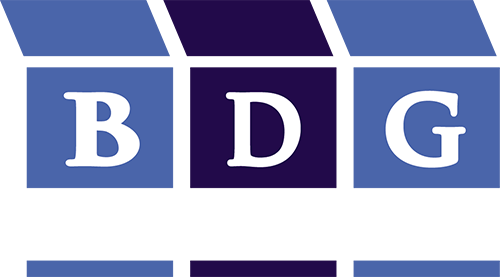Top 10 Bookkeeping Tips For Business Owners
Bookkeeping can be a struggle for business owners. While some business owners have the budget to hire a bookkeeper, or engage an accounting firm to handle their bookkeeping, many simply don’t have the funds to do so. As a result, they end up doing the bookkeeping themselves (and not always well).
We’ve seen a lot of issues with bookkeeping in the past, and honestly, just a general lack of understanding of what bookkeeping is. Instead of giving you the bookkeeping basics, we’ve compiled this list of tips based on the most common bookkeeping errors or issues we’ve seen.
1. Avoid Using Excel Spreadsheets
Reconciling is a huge part of bookkeeping, and trust us when we say that you can’t do that in an Excel spreadsheet. While onboarding clients, we’ve seen a lot of “bookkeeping” being done in Excel. But tracking expenses in a spreadsheet isn’t bookkeeping.
Xero has a great blog post about bookkeeping basics on their website. If you’re curious, check it out here.
If you have the budget to use a bookkeeping software (like Xero), it can make tracking transactions, categorizing them, and balancing everything much easier. We partner with some great software companies, so feel free to ask us about them!
#ProTip: Some accountants (like us) are able to offer clients a reduced subscription rate on their bookkeeping software.
2. Use and Create the Right Accounts
Some bookkeeping softwares let you create an endless number of accounts, and it can make things messy, especially when it comes time for your accountant to do your year-end. Examples of unnecessary accounts that we’ve seen include: bank accounts that don’t exist, “miscellaneous” accounts that don’t provide any information, and sales tax accounts that are not needed.
Your accountant will need to reconcile and agree balances to statements, and if you’ve created any of these unnecessary accounts, they may need to reclassify everything you’ve put into those accounts. Great for your accountant, but not so great for you.
3. Categorize All Expense Transactions
Every single expense incurred by your business needs to be categorized appropriately. We’ve seen business owners put all expenses (or the majority of their expenses) into uncategorized expenses and tada! Their bookkeeping is done!
Facepalm…
If that’s how you’ve been doing your bookkeeping, your accountant has probably had to make a lot of adjustments. Which probably results in a hefty bill every year.
What you want to do is make sure you’re familiar with the different categories. Some of the main categories for expenses are:
- Professional Fees
- Meals/Entertainment
- Supplies
- Office Expenses
- Travel
- Utilities
- Vehicle
If you aren’t sure which categories to use, the CRA website has a complete list and has descriptions for each.
4. Categorize All Revenue Amounts
Just like with your expenses, you need to categorize all of your revenue amounts correctly. This gets overlooked a lot, and it’s important because different revenue sources are taxed at different rates.
Some of the more common revenue categories are:
- Consulting income
- Interest income
- Rental income
- Marketing income
As an example, interest income is taxed at a different rate than other revenue sources. Make sure that you categorize these correctly in order to ensure you are taxed correctly. No one likes paying more tax than they have to!
5. Applying Correct Sales Tax
Claiming tax on items or expenses that should be exempt is a common issue that we’ve seen. So is not claiming tax on expenses. And the latter will mean you owe more tax than you actually should.
Using the wrong sales tax can have an impact on your balance sheet, income statement, GST return, and the list goes on. If you aren’t sure what the correct sales tax for a particular transaction is, make sure to ask your accountant!
6. Have a Balance Sheet
You need a balance sheet. There are certain items that you can’t record as a current item or in the current year, such as some of your assets, liabilities, and equity transactions. That’s why a balance sheet is so important!
You also need to know which of these items are capital in nature and which get amortized, as this has an accounting and tax implication. Keep in mind, there are different classes for assets, along with different amortization rules for each. Sounds fun, right? It’s a good thing we love what we do!
7. Reconciliation
For our monthly bookkeeping clients, we agree the balance in their bookkeeping software of choice, to their bank statements, credit card statements, etc. Whereas sometimes when we onboard a new client, we discover that they have not reconciled all year. That can make for a frustrating, stressful, and long year-end process.
Many issues can occur throughout the year, like missed transactions due to bank feed failures, duplicate transactions, or even manual errors. And just imagine finding at year-end that your final balances in your bookkeeping software are thousands of dollars off from your bank statements. It can take forever to pinpoint the issue (or in most cases, issues).
8. Match Your Expenses to Invoices & Receipts
Another issue we’ve come across is either very disorganized receipts and invoices, or a lack of receipts and invoices.
So first, make sure you have receipts and invoices for all of your expenses.
Second, have a good system for keeping track of your receipts and invoices. You can use an app like Receipt Bank, or you may just use a shoe box (which we don’t really recommend). Whatever you choose, we recommend writing a note on each receipt to describe the expense, so you don’t forget.
If you spend an extra minute now, it will save you a lot of time at year-end!
9. Update Amounts You Are Owed (and Owe)
For accounting purposes, you have to bookkeep on an accrual basis. For business owners who are not super familiar with bookkeeping, they sometimes do their bookkeeping on a cash basis. As an example, if you had a major expense which you didn’t pay for until after year-end, but the date of the invoice was before year-end, you should be recording it based on when you were invoiced, not when you paid for it.
And then at year-end, it’s important to write off the amounts that you aren’t going to be collecting anymore.
10. Capture Use of Personal Funds
Some business owners neglect to capture the use of their personal funds when paying for business expenses. The same is true for the reverse. Make sure these are captured, otherwise you are foregoing potential deductions, which can minimize your taxes owing. And who doesn’t want to reduce their taxes?!
Clearly, there is a lot involved in bookkeeping – a lot more than what we’ve covered here. But these are some of the common issues we’ve come across over the years, and we hope it will help you with your bookkeeping.
If you are curious about the bookkeeping services that we provide, contact us for a free consultation.

